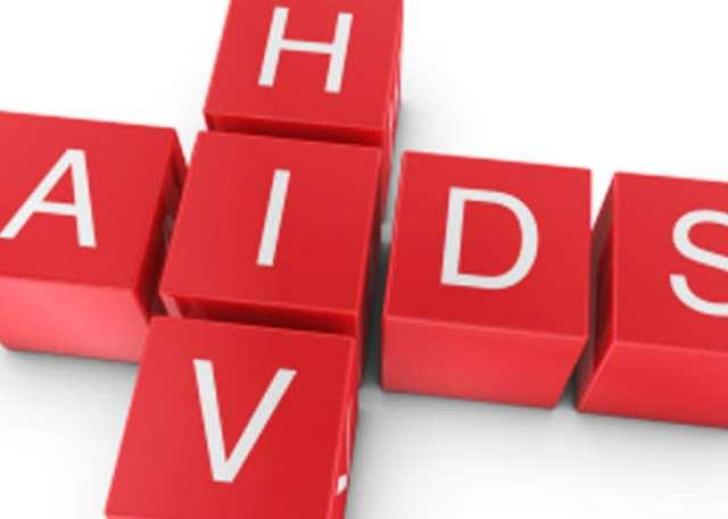News / National
Harare faces alarming surge in STI cases
2 hrs ago | Views

Harare, June 24, 2025 - Harare is facing a troubling rise in sexually transmitted infections (STIs), with over 25,000 new cases recorded in 2024, according to recent figures released by the National Aids Council (NAC).
Speaking during a community outreach event in Hopley last Friday, NAC Harare Provincial Manager Mr. Adonijah Muzondiona described the situation as a growing public health concern. He revealed that the city registered 25,457 new STI cases, of which 7,523 were repeat infections - a sign of persistent transmission and limited treatment follow-up.
"The increase in STIs highlights a significant public health challenge in Harare, one that requires urgent attention and targeted interventions," Muzondiona said.
Data shows the highest prevalence of new infections occurred among individuals aged 40–44 years (3,927 cases) and 45–49 years (3,229 cases), with women disproportionately affected. Among women aged 45–49, 1,844 cases were reported, signalling gendered vulnerabilities and healthcare gaps in older populations.
The rise in cases has been attributed to a combination of low condom use, limited awareness, and high population mobility, especially in informal settlements and among economically vulnerable groups.
Despite the spike in STIs, Harare has achieved commendable progress in its HIV response, reportedly meeting the UNAIDS 95-95-95 targets for epidemic control. However, Mr. Muzondiona warned that STI surges could threaten these gains unless integrated prevention efforts are urgently scaled up.
Minister of Harare Metropolitan Provincial Affairs and Devolution, Charles Tawengwa - represented by Permanent Secretary Mr. Cosmas Chiringa - emphasised the need for enhanced domestic funding to sustain the health sector's response.
"While we have the National AIDS Trust Fund, it is evident that we must continue being innovative and increase domestic resources to support the response," said Chiringa.
He also stressed the need to strengthen efforts in identifying children born with HIV, a key gap in the current system.
The NAC has adopted a data-driven approach to tailor its interventions, with a focus on adolescents, young women, sex workers, and informal traders - groups most at risk of infection. Programmes such as Sista2Sista, Brotha2Brotha, and DREAMS are part of NAC's broader strategy to improve awareness and service uptake.
"These programmes not only create demand for STI and HIV services but also address deep-rooted social and cultural barriers," said Muzondiona.
Despite these efforts, the persistence of repeat cases underlines the need for sustained public health education, stronger outreach, and integration of STI care with other health services, including HIV testing and chronic disease management.
As Harare contends with the STI surge, NAC has called on all stakeholders - from government to grassroots - to intensify efforts in promoting safe sexual practices, reducing stigma, and expanding access to healthcare.
"It is imperative that we sustain the gains we have made in epidemic control and continue scaling up prevention and treatment services for vulnerable populations," Muzondiona said.
The challenge ahead, health experts warn, is ensuring that limited resources do not stall progress in the fight against both HIV and STIs - and that no one is left behind.
Speaking during a community outreach event in Hopley last Friday, NAC Harare Provincial Manager Mr. Adonijah Muzondiona described the situation as a growing public health concern. He revealed that the city registered 25,457 new STI cases, of which 7,523 were repeat infections - a sign of persistent transmission and limited treatment follow-up.
"The increase in STIs highlights a significant public health challenge in Harare, one that requires urgent attention and targeted interventions," Muzondiona said.
Data shows the highest prevalence of new infections occurred among individuals aged 40–44 years (3,927 cases) and 45–49 years (3,229 cases), with women disproportionately affected. Among women aged 45–49, 1,844 cases were reported, signalling gendered vulnerabilities and healthcare gaps in older populations.
The rise in cases has been attributed to a combination of low condom use, limited awareness, and high population mobility, especially in informal settlements and among economically vulnerable groups.
Despite the spike in STIs, Harare has achieved commendable progress in its HIV response, reportedly meeting the UNAIDS 95-95-95 targets for epidemic control. However, Mr. Muzondiona warned that STI surges could threaten these gains unless integrated prevention efforts are urgently scaled up.
Minister of Harare Metropolitan Provincial Affairs and Devolution, Charles Tawengwa - represented by Permanent Secretary Mr. Cosmas Chiringa - emphasised the need for enhanced domestic funding to sustain the health sector's response.
"While we have the National AIDS Trust Fund, it is evident that we must continue being innovative and increase domestic resources to support the response," said Chiringa.
He also stressed the need to strengthen efforts in identifying children born with HIV, a key gap in the current system.
The NAC has adopted a data-driven approach to tailor its interventions, with a focus on adolescents, young women, sex workers, and informal traders - groups most at risk of infection. Programmes such as Sista2Sista, Brotha2Brotha, and DREAMS are part of NAC's broader strategy to improve awareness and service uptake.
"These programmes not only create demand for STI and HIV services but also address deep-rooted social and cultural barriers," said Muzondiona.
Despite these efforts, the persistence of repeat cases underlines the need for sustained public health education, stronger outreach, and integration of STI care with other health services, including HIV testing and chronic disease management.
As Harare contends with the STI surge, NAC has called on all stakeholders - from government to grassroots - to intensify efforts in promoting safe sexual practices, reducing stigma, and expanding access to healthcare.
"It is imperative that we sustain the gains we have made in epidemic control and continue scaling up prevention and treatment services for vulnerable populations," Muzondiona said.
The challenge ahead, health experts warn, is ensuring that limited resources do not stall progress in the fight against both HIV and STIs - and that no one is left behind.
Source - The Herald






























